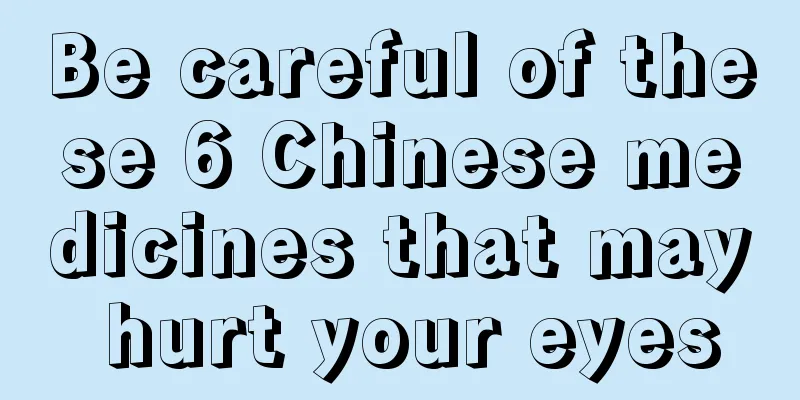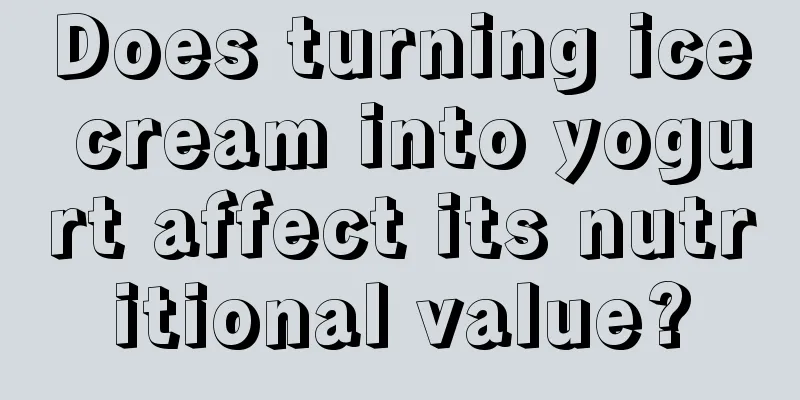Be careful of these 6 Chinese medicines that may hurt your eyes

|
Looking at the computer or TV for a long time will not only make your eyes tired, but also cause symptoms such as dizziness and brain swelling. At this time, many people will drink a cup of chrysanthemum tea to protect their eyes, but did you know that the well-known eye-protecting Chinese medicines such as chrysanthemum, licorice, carrots, etc. will hurt your eyes more if used improperly. chrysanthemum Chrysanthemum is often consumed as tea, but it can cause severe allergic conjunctivitis. People with a history of allergic conjunctivitis due to hay fever need to be especially careful, as such people are also prone to reactions when taking chrysanthemum. It can be seen that although chrysanthemum tea can nourish the liver and improve eyesight, you must consider whether your physical condition is suitable for drinking it when drinking it.
ginkgo Ginkgo is one of the most commonly used Chinese herbal medicines. Long-term combined use of ginkgo extract and aspirin may cause spontaneous intraocular hyphema. This is because both ginkgo and aspirin can reduce platelet activity, and their combined effect increases the risk of bleeding.
Licorice If you take more than 50 grams of licorice per day, toxic side effects may occur. This is by no means a fabrication. A study found that five patients who took 186 to 746 grams of licorice per day developed unilateral or bilateral flash blindness and vision loss, accompanied by headaches and increased blood pressure.
Carrot Herbs There is no specific research on the relationship between excessive intake of carrots and cataracts, but some scholars believe that excessive intake of carrots may lead to cataracts. Because carrots contain coumarin, psoralen, etc., these substances can become toxic substances under the action of ultraviolet rays. Ultraviolet rays themselves can cause cataracts, and these toxic substances increase the risk of cataract development.
chili Chili peppers are rich in vitamin A and vitamin C. Some of their extracts can be made into eye drops to treat blepharitis and conjunctivitis. Because it is an irritant, it can worsen the irritation symptoms of conjunctivitis. There have been reports of corneal ulcers in some patients who used eye drops made from high concentrations of chili extract.
Citral Citral is the main component of lemon balm. Studies have shown that taking small doses of 2-5 mg of citral in monkeys can increase intraocular pressure, and in severe cases, secondary glaucoma may occur. The same toxic side effects may also occur in humans, so caution is required when using it. In addition to the citral introduced above which can cause high intraocular pressure and glaucoma, other Chinese herbal medicines that can cause increased intraocular pressure and secondary angle-closure glaucoma include henbane plants. Because they can dilate the pupil and cause obstruction to the outflow of aqueous humor. In addition, the commonly used Chinese medicine ephedra can also cause increased intraocular pressure. |
<<: 10 great ways to prevent heatstroke and cool down during the Lesser Heat Season
>>: Don't ignore the 5 fatal diseases that hair loss indicates
Recommend
How to induce a full-term baby?
After the baby is full-term, under normal circums...
The efficacy and function of purple hair crystal
In daily life, there are some accessories that we...
How to kill mites most effectively_How to remove mites most thoroughly
Mites are very common around us, but we can't...
Can't people with thyroid cancer eat turnips?
Thyroid cancer patients can eat turnips. The occu...
How to use carbon deposit cleaning agent
Many mechanical products, if used for a long time...
The best treatment for pinworm disease
Many mothers find that their children cry at nigh...
Tinnitus and buzzing in the head
Some people will experience tinnitus. People with...
Is the chemical hydrogen peroxide harmful to the human body?
Hydrogen peroxide is actually what we usually cal...
What to do with rheumatoid arthritis pain
Rheumatoid arthritis is very common in clinical p...
Where can I get moxibustion to regulate my spleen and stomach
The spleen and stomach are very important organs ...
How to prevent melanoma
In the survey of many melanoma patients, it was f...
Honey jasmine tea production steps
Many people like to drink honey and jasmine tea, ...
Do I need to avoid certain foods if I have skin allergies?
Skin allergy is a common skin disease. There are ...
How to remove surgical scars
Surgery is a relatively common treatment method i...
What should be paid attention to in the treatment of lung cancer? These three aspects should be paid attention to in the treatment of lung cancer
What should we pay attention to when treating lun...









